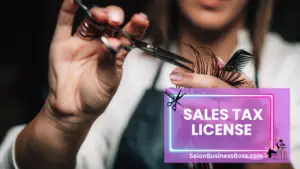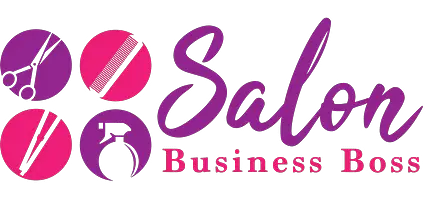Opening a tanning salon can be an exciting venture for entrepreneurs looking to tap into the booming beauty and wellness industry. However, before diving into this endeavor, it’s crucial to understand the legal requirements and licenses involved. Navigating the legal landscape ensures compliance with local, state, and federal regulations and guarantees a smooth and successful business launch.
Licenses you need to open a tanning salon are: Business license, EIN (Employer Identification Number), health and safety permits, tanning facility permit, zoning and land use permits, building permits, signage permits, music and entertainment licenses, and sales tax license.
1. Business License:

Obtaining a general business license is the foundational step for starting any business, including a tanning salon. This essential license provides you with the legal authority to operate your salon within the designated area while adhering to the specific regulations set by the authorities. By securing this license, you ensure that your business is compliant with the laws and regulations that govern commercial operations in your locality.
The process of obtaining a business license may differ from one location to another. Therefore, it is crucial to reach out to the local municipality or county office to gain a comprehensive understanding of the specific requirements, fees, and application procedures relevant to your tanning salon. Doing so will help you navigate through the licensing process smoothly and minimize any potential delays or obstacles.
Obtaining a general business license demonstrates your commitment to conducting your tanning salon operation lawfully and professionally. It also builds trust with potential customers, investors, and stakeholders, as they recognize that your business is operating within the bounds of legal compliance.
By fulfilling this first and foremost requirement, you lay a strong foundation for your tanning salon, ensuring a legitimate and prosperous venture that contributes to the thriving beauty and wellness industry. Embrace this critical step, and let it guide you towards a successful and rewarding journey as a tanning salon owner.
Read more about: Hair Salon Business License (What documents you need to start your salon)
2. Employer Identification Number (EIN):
The Employer Identification Number (EIN) is a vital requirement for any tanning salon owner intending to hire employees. This distinctive nine-digit number, issued by the Internal Revenue Service (IRS), serves as the official tax identification number for your business. Having an EIN is not only mandatory for businesses with employees, but it also facilitates various financial and legal aspects of your salon operation.
One of the primary benefits of obtaining an EIN is the ability to open a business bank account. Separating your business finances from personal finances ensures clarity and simplifies accounting procedures. Additionally, an EIN is essential for processing payroll and complying with federal tax withholding and reporting requirements.
When it comes to filing taxes, the EIN is used to identify your business, streamlining the tax reporting process. It is crucial to accurately report earnings, deductions, and other financial details associated with your tanning salon to remain compliant with tax laws.
Obtaining an EIN is a relatively straightforward process, as it can be conveniently applied for online through the IRS website. The quick and efficient application procedure allows you to receive your EIN promptly, enabling you to proceed with setting up your tanning salon business without unnecessary delays.
3. Health and Safety Permits:
As a responsible tanning salon owner, prioritizing the health and safety of your customers is of utmost importance. To ensure legal operation, you will likely need to obtain health and safety permits. These permits are typically issued by the local health department, which conducts thorough inspections of your salon to verify compliance with stringent health and safety standards.
The requirements for obtaining health and safety permits may vary depending on your location, but they commonly involve aspects such as proper ventilation, sanitation procedures, and adherence to strict safety guidelines concerning tanning beds and equipment. Adequate ventilation helps to maintain a clean and comfortable environment for both customers and employees, minimizing the risk of exposure to potentially harmful fumes or substances.
Sanitation procedures are crucial in preventing the spread of germs and maintaining a hygienic environment within the salon. Regular cleaning and disinfection of tanning beds and equipment, as well as common areas, contribute to ensuring the well-being of everyone who enters your establishment.
Adhering to safety guidelines regarding tanning beds and equipment is essential to prevent accidents and potential injuries. Proper maintenance of tanning beds guarantees their optimal performance, reducing the risk of malfunction or harm to customers.
4. Tanning Facility Permit:
Certain states and local jurisdictions have specific regulations that necessitate a specialized tanning facility permit for operating a tanning salon. This permit ensures that your salon meets the essential safety standards for tanning bed usage and maintenance of equipment.
To obtain the tanning facility permit, your salon must undergo comprehensive inspections to confirm that your tanning beds are in proper working condition and calibrated accurately. These inspections also evaluate the safety features of the equipment to prevent any potential hazards.
Furthermore, tanning facility permits may include compliance with age restrictions to protect minors from excessive UV exposure, promoting responsible tanning practices among your customer base.
By acquiring the tanning facility permit, you demonstrate your commitment to operating a safe and responsible tanning salon. This permit not only helps in ensuring the well-being of your customers but also contributes to building trust and credibility in the community. Adhering to these regulations underscores your dedication to providing a safe and enjoyable tanning experience for your valued patrons.
5. Zoning and Land Use Permits:

Before finalizing the location for your tanning salon, conducting due diligence regarding zoning and land use permits is crucial. Zoning laws and regulations vary from one city or state to another and dictate the allowable usage of commercial spaces within specific areas. As such, it is essential to check with the local zoning board to confirm whether the chosen location is zoned for commercial use and, specifically, for a tanning salon.
Complying with zoning laws is vital to avoid potential legal issues that may arise from operating a business in an area not designated for commercial purposes. Failure to adhere to zoning regulations can lead to severe consequences, including fines, penalties, and forced closure of your salon. Additionally, violating zoning laws may result in delays in obtaining the necessary permits to start your business, causing disruptions to your planned timeline.
By proactively ensuring that your tanning salon location aligns with the appropriate zoning and land use permits, you demonstrate respect for local regulations and foster a positive relationship with the community. Confirming the suitability of the location before committing to it provides peace of mind, knowing that your business is operating within the confines of legal compliance.
Read more about: Navigating the Regulatory Landscape: Requirements to Open a Hair Salon
6. Building Permits:
If you intend to renovate an existing space or construct a new building for your tanning salon, securing building permits is imperative. Building permits are issued by local authorities to ensure that the construction work adheres to safety and building code requirements.
Obtaining building permits is a fundamental step in the construction process, as it involves the inspection of architectural plans, structural integrity, electrical systems, plumbing, and fire safety measures. Compliance with building codes is crucial to safeguard the safety of occupants and visitors to your salon.
Attempting to commence construction without proper building permits can result in serious consequences, including fines and legal penalties. Moreover, working without permits may lead to delays in the construction timeline, hindering your ability to open the tanning salon on schedule and potentially incurring additional costs.
By obtaining the necessary building permits, you demonstrate your commitment to adhering to legal standards and prioritizing the safety of your customers and employees. Taking these necessary precautions ensures a smooth construction process and contributes to the successful and lawful establishment of your tanning salon.
7. Signage Permits:
Effective signage is essential for promoting your tanning salon and attracting potential customers. However, before displaying any signs, it is crucial to obtain signage permits to ensure compliance with local regulations. Signage permits are issued by local municipalities and govern aspects such as the size, placement, and design of the signs.
These regulations aim to maintain the aesthetics and safety of the community while preventing clutter and visual pollution. By securing the necessary signage permits, you demonstrate your commitment to being a responsible business owner who respects the local community and adheres to the established guidelines.
Prior to designing and installing your salon’s signs, consult with the local zoning office or city planning department to understand the specific requirements and restrictions. Failing to obtain signage permits can result in fines, penalties, and potential removal of non-compliant signage, which may negatively impact your salon’s image and reputation.
8. Music and Entertainment Licenses:
Creating an enjoyable and welcoming ambiance in your tanning salon often involves playing music or offering other forms of entertainment for your customers. However, playing copyrighted music in public spaces requires obtaining licenses from performing rights organizations (PROs) like ASCAP, BMI, or SESAC.
These licenses ensure that the artists and composers whose music is played in your establishment are compensated for their creative work. By acquiring these licenses, you comply with copyright laws, support the music industry, and promote fair compensation for artists.
To obtain music and entertainment licenses, you can directly contact the respective PROs or use services that offer bundled licensing options for businesses. These licenses typically have annual fees based on factors such as the size of your salon and the type of entertainment provided.
Failure to obtain the necessary licenses can result in legal ramifications, including hefty fines and potential lawsuits for copyright infringement. By being proactive and responsible in acquiring the required licenses, you create a positive and legally compliant environment for your customers to enjoy their tanning experience.
9. Sales Tax License:

As a retail business, your tanning salon is obligated to collect sales tax from customers on products and services sold. To facilitate this process and remain compliant with tax laws, obtaining a sales tax license from your state’s taxing authority is imperative.
The sales tax license allows you to legally collect, report, and remit sales tax to the appropriate governmental entities. Without this license, you risk facing penalties and legal consequences for failing to comply with tax regulations.
To obtain a sales tax license, you must register with your state’s department of revenue or taxation and follow the prescribed procedures. This typically involves submitting an application, providing relevant business information, and obtaining a unique sales tax identification number.
Once you have the sales tax license, ensure accurate and timely record-keeping of all sales tax transactions. Regularly remitting the collected sales tax to the appropriate tax authority is vital to avoid penalties and maintain the integrity of your tanning salon’s financial operations.
Read more about: Get Ready to Shine: Tanning Salon License Essentials
Conclusion
Opening a tanning salon can be a rewarding venture, but it requires careful attention to legal requirements. Acquiring the necessary licenses and permits is essential for ensuring a smooth and legal operation. Remember to research local, state, and federal regulations, and consult with legal professionals if needed, to make your tanning salon dream a reality while staying on the right side of the law.
Frequently Asked Questions

1. Is a sales tax license necessary for a tanning salon?
Yes, as a retail business, you’ll need a sales tax license to collect sales tax on products and services sold in your salon. Obtain it from your state’s taxing authority.
2. Are there age restrictions for using tanning beds?
Some states and localities may have age restrictions for tanning bed usage. Ensure compliance with these regulations when admitting customers.
3. Do I need special permits for spray tanning services?
It depends on your location and local regulations. Check with your city or state authorities to determine if spray tanning requires specific permits.
To learn more on how to start you own salon checkout my startup documents here.
Please note that the contents of this blog are for informational and entertainment purposes only and should not be construed as legal advice. Any action taken based on the information provided in this blog is solely at your own risk. Additionally, all images used in this blog are generated under the CC0 license of Creative Commons, which means they are free to use for any purpose without attribution.

About the author. Entrepreneur and Salon Business Fan.
Hi! I am Shawn and I am a happy individual who happens to be an entrepreneur. I have owned several types of businesses in my life from a coffee shop to an import and export business to an online review business plus a few more and now I create online salon business resources for those interested in starting new ventures. It’s demanding work but I love it. I do it for those passionate about their business and their goals. That’s why when I meet a salon business owner, I see myself. I know how hard the struggle is to retain clients, find good employees and keep the business growing all while trying to stay competitive.
That’s why I created Salon Business Boss: I want to help salon business owners like you build a thriving business that brings you endless joy and supports your ideal lifestyle.

